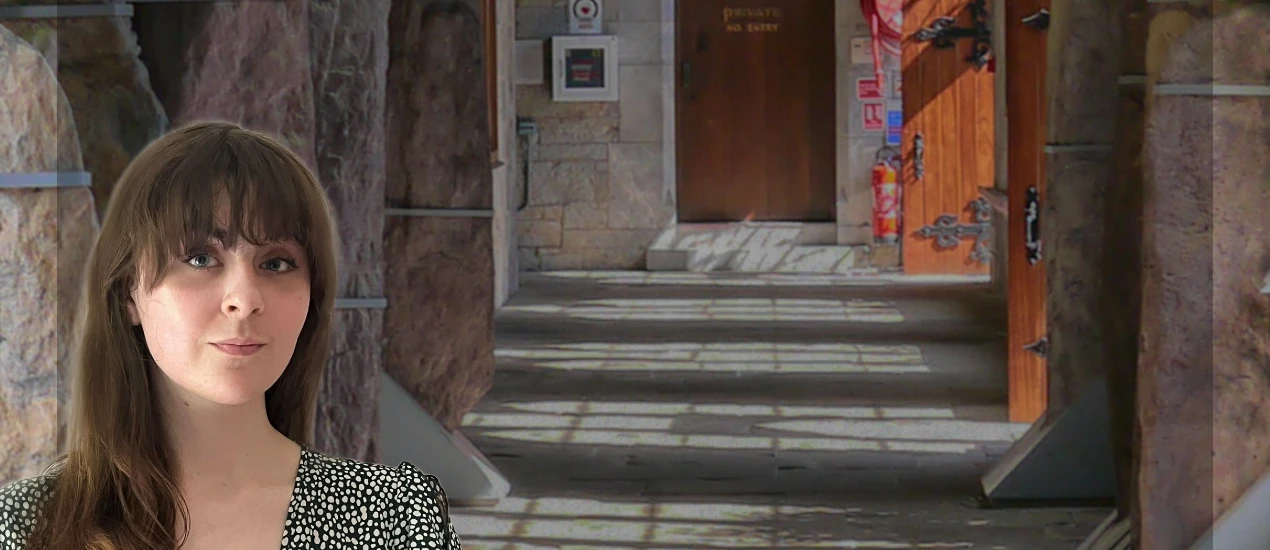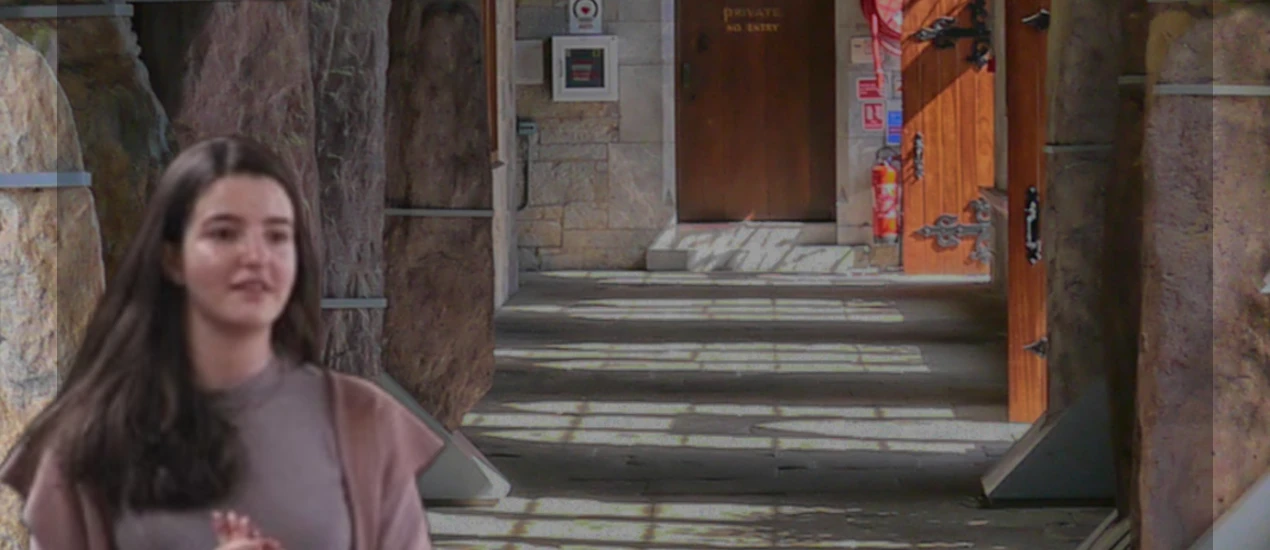| Code | CK105 |
|---|---|
| Duration | 3 or 4 years |
| Teaching Mode | Full-time |
| Qualifications | BA (Hons) |
| NFQ Level | Level 8 |
| CAO Points | 2025: 390 |
| CAO Points Range | 2025: 390-613 |
Course Outline
University College Cork's BA in Film & Screen Media is a unique, major degree that offers students a thorough film studies education on the history, theory, values, aesthetics and ideology of the moving image.
Our philosophy, at the Department of Film and Screen Media, is that theory, analysis and history must be informed by practice, and that practice must, in turn, be informed by a deep understanding of how cinema and ideas about the moving image have developed. Hence, our programme innovatively combines the study of film and of screen media (Internet, mobile social media, e-publishing) and practical filmmaking modules and workshops in digital filmmaking and in writing for the screen.
Led by internationally recognised experts, this BA in Film & Screen Media will immerse you in the history and theory of film and screen media from around the world, from the birth of cinema to the age of the Internet. With a thriving component of visiting speakers, guest practitioners and artists in residence, our students have the chance to meet and be taught by professionals of the film industry and by expert speakers from universities and archives from around the world.
You also have the opportunity to make films under the guidance of experienced practitioners, and avail of professionalising opportunities provided by the programme's partnership with film festivals such as Schull's Fastnet Short Film Festival.
Students may opt into the International Pathway of the BA, and spend Year 3 studying Film and Screen Media at one of our partner universities abroad. (See our BA page for an indicative list of participating universities.)
This BA will equip you with skills that will work across a broad variety of careers including the media, culture and creative industries, teaching, journalism, or for further study and research at postgraduate level.
Programme Structure and Modules
Our BA in Film & Screen Media is a major degree programme that lasts 3 years. Students take 60 credits each year, as follows:
| Year 1 | BA Film & Screen Media (30 credits) + two other subjects (15 credits each) |
|---|---|
| Year 2 | BA Film & Screen Media (40 credits) + one other subject (20 credits) |
| Year 3 | BA Film & Screen Media (40 credits) + one other subject (20 credits) |
You can also take the International Pathway, and spend Year 3 studying Film and Screen Media at a partner university abroad before returning to UCC to complete your programme in Year 4. See our Go Abroad with UCC page for more information.
In Year 1 you take core courses in film studies including the theory, history, and aesthetics of film and screen media, as well as a module in practical filmmaking.
| Year 1 Modules | Title |
|---|---|
| FX1001 | Introduction to Film Studies (10 credits) |
| FX1002 | Introduction to Screen Media and Culture (5 credits) |
| FX1003 | Early Cinema: From the Magic Lantern to the Pioneers (5 credits) |
| FX1004 | Introduction to Digital Media (10 credits) |
Academic Programme Catalogue
See the Academic Programme Catalogue for the complete and up-to-date content for this course. Note that the modules for all courses are subject to change from year-to-year. For complete descriptions of individual modules, see the Book of Modules. For the International Pathway, see the BA Film & Screen Media (International) Pathway page.
Course Practicalities
Expected lecture hours: The course is a full-time, three-year BA degree. The minimum number of lectures and seminars each week will be six hours, to take place on campus. Canvas, UCC’s learning management system, will be utilised as a support to seminars and lectures. In some cases, courses will include compulsory screenings of films.
Expected lab/practical hours: The practical modules will involve some extra hours of self-directed filming and editing. The module Screen Industries (with Placement), which will not be on offer every year, includes a short approved placement within the film, media or cultural industries.
Teaching faculty
Our teaching faculty and team include:
- Dr Abigail Keating, Course Director for Film & Screen Media
- Dr Ciara Chambers, Lecturer in Film & Screen Media
- Dr Barry Monahan, Lecturer in Film & Screen Media
- Professor Laura Rascaroli, Lecturer in Film & Screen Media
- Dr Gwenda Young, Co-Head of Department, MA Coordinator, Film & Screen Media
- Mr Dan O'Connell, Co-Head of Department, Lecturer in Filmmaking
- Our Senior Technical Officer, Barry Reilly, will be on hand to assist the students in their practical work.
We also welcome leading figures from the worlds of film, media and television in our acclaimed masterclasses and public lectures.
Why Choose This Course
This course is unique in its combination of film studies and screen media: you will get the chance to work with a resident filmmaker and collaborate on short films and promos. You will have the opportunity of working on a treatment and a short script under the tutelage of an accredited expert.
Leading figures from both Ireland and further afield will give guest lectures on film-making, film producing, screenwriting, acting, film history, and marketing of films, continuing our strong record in attracting notable speakers, including Oscar-nominated filmmakers, producers and actors.
Placement or Study Abroad Information
Our Year 3 Film & Screen Media - International Pathway is spent in an approved foreign university where students will study approved courses/modules to the equivalent value of 60 credits. All courses will be assessed by the approved Host University. See our Go Abroad with UCC page for more information.
The undergraduate Work-Experience Recognition Module (PX3000) for the College of Arts, Celtic Studies and Social Sciences is a final-year module that offers students the opportunity to gain retrospective recognition for professional work experience undertaken during the course of their studies.
Skills and Careers Information
With masterclasses given by practitioners from the industry, and modules in practical filmmaking/digital video, the BA will aid those seeking jobs in the film/media industry and in creative/culture industries.
The strong emphasis on developing analytical and writing skills will benefit those interested in pursuing a career in arts journalism. Furthermore, you will develop high levels of visual literacy that will ideally complement further studies (e.g. UCC’s MA in Film & Screen Media), or career paths in a wide variety of design and visual communications areas, including advertising, web and graphic design, television, multimedia, computer gaming and publishing.
Requirements
Leaving Certificate Entry Requirements
At Least six subjects must be presented. Minimum grade H5 in two subjects and minimum grade O6/H7 in four other subjects. English and Irish are requirements for all programmes unless the applicant is exempt from Irish.
Applicants will need to meet the following minimum entry requirements:
| English | Irish | Other Language |
|---|---|---|
| O6/H7 | O6/H7 | O6/H7 |
EU/EFTA/UK Qualifications
EU/EFTA/UK applicants presenting an equivalent school-leaving qualification should review the EU/EFTA/UK Applicants page for information on equivalent grades and how to prove their level of English.
Mature Students
To compete through the mature entry route, applicants must be 23 years of age on or before 1 January of the application year and apply online via the CAO by 1 February. The application should include a statement of interest, and applicants may also be called for interview.
Further information on applying as a mature student is available on the Mature Applicants and Mature Student Entry support pages.
QQI FET Entry
Applicants who meet the required level of distinctions in required subjects can apply for entry to this course using specific QQI FET qualifications. Please review the Programme Requirements on our Information for QQI FET Applicants page for information on related QQI courses, and visit Access UCC’s QQI/FET Entry section for further support.
Non-EU Applicants
Non-EU applicants are expected to have educational qualifications of a standard equivalent to the Irish Leaving Certificate. In addition, where such applicants are non-native speakers of the English language they must satisfy the university of their competency in the English language.
To verify if you meet the minimum academic and language requirements visit our qualification comparison page and refer to our International Office page for more information.
Fees and Costs
- Whether you are an EU or Non-EU student will affect the course fees applicable to you. See more information on EU Fees, Non-EU Fees, or Free Fees Status.
- The State will pay the tuition fees for EU students who are eligible under the Free Fees Scheme. The annual student contribution and capitation fees are payable by the student.
- See the Fee Schedule to find out the course fee.
- Check out scholarships that may be available to you.
- Explore our Nurturing Bright Futures free online course (Module 5) to learn about managing your money as a student and budgeting for university life.
How To Apply
Irish and European (EU/EFTA/UK) Applicants
Apply via the CAO. See the CAO Handbook for useful information on applying through the CAO.
Mature Applicants
Apply via the CAO by 1 February. To apply for a place as a mature student, you must be 23 years of age on or before 1 January of the year of entry.
QQI/FET Applicants
Apply via the CAO. See our QQI/FET Applicants page for information on the Quality and Qualifications Ireland (QQI) Further Education and Training (FET) application process and whether there are routes available to this course.
Non-EU Applicants
If you are from outside the EU/EFTA/UK, apply online via the UCC Apply portal. See our International Office page for more information.


